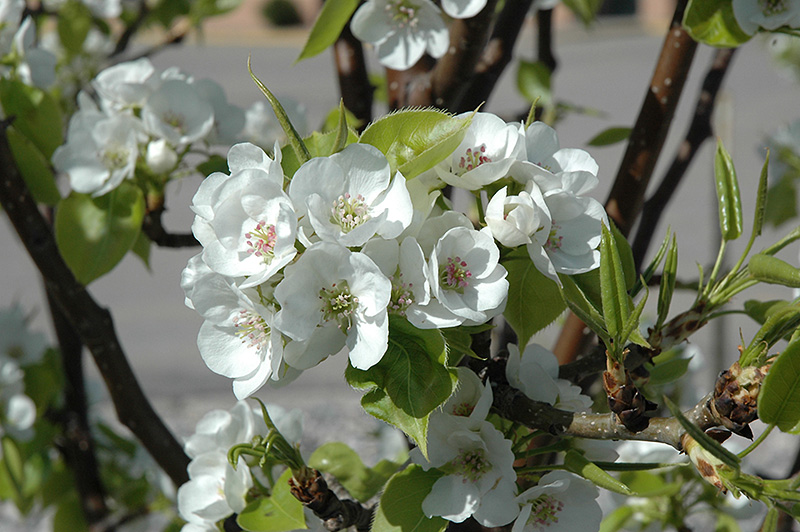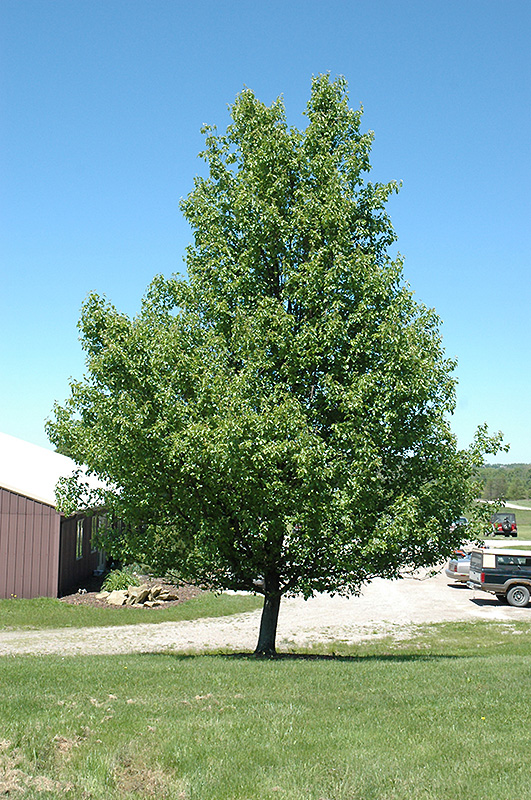Plantfinder
siteadmin2023-06-04T13:10:09-03:00
Height: 20 feet
Spread: 20 feet
Sunlight:
![]()
Hardiness Zone: 3a
Other Names: Ussurian Pear
Description:
An ornamental feature tree which is smothered in clouds of showy white flowers in spring, good fall color and compact oval shape, ideal for smaller landscapes; fruit is poor quality and not for eating, fallen fruit can be messy, resistant to fireblight
Ornamental Features
Prairie Gem Pear is covered in stunning clusters of white flowers with purple anthers along the branches in mid spring, which emerge from distinctive shell pink flower buds. It has dark green deciduous foliage. The glossy oval leaves turn an outstanding gold in the fall. The fruits are showy yellow pomes displayed in early fall. The fruit can be messy if allowed to drop on the lawn or walkways, and may require occasional clean-up.
Landscape Attributes
Prairie Gem Pear is a dense deciduous tree with a shapely oval form. Its average texture blends into the landscape, but can be balanced by one or two finer or coarser trees or shrubs for an effective composition.
This is a high maintenance tree that will require regular care and upkeep, and is best pruned in late winter once the threat of extreme cold has passed. Gardeners should be aware of the following characteristic(s) that may warrant special consideration;
- Messy
Prairie Gem Pear is recommended for the following landscape applications;
- Accent
- Shade
- Vertical Accent
Planting & Growing
Prairie Gem Pear will grow to be about 20 feet tall at maturity, with a spread of 20 feet. It has a low canopy with a typical clearance of 4 feet from the ground, and is suitable for planting under power lines. It grows at a fast rate, and under ideal conditions can be expected to live for 70 years or more.
This tree should only be grown in full sunlight. It does best in average to evenly moist conditions, but will not tolerate standing water. It is not particular as to soil type or pH. It is highly tolerant of urban pollution and will even thrive in inner city environments. This is a selected variety of a species not originally from North America.
A NetPS Plant Finder tool

